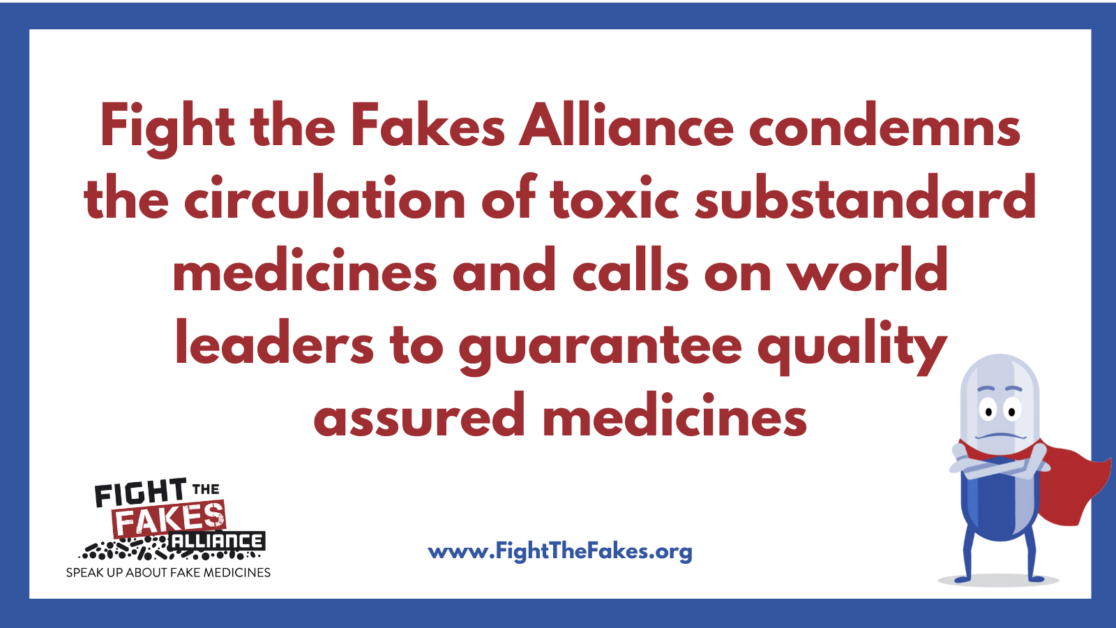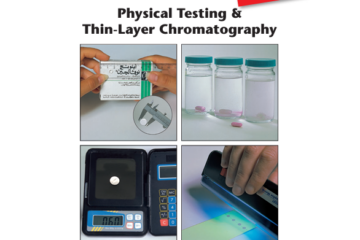
According to the latest World Health Organization (WHO) updates[i] and reports from Gambian authorities, at least 66 young children in The Gambia may have died from acute kidney injuries caused by contaminated cough and cold syrups[ii]. Fight the Fakes Alliance condemns the circulation of toxic substandard medicines and calls on world leaders to guarantee quality assured medicines.
Raising the alarm
On 5 October 2022, the WHO issued a medical product alert warning that substandard syrups were contaminated with an “unacceptable” amount of toxic industrial chemicals. Although the products have only been identified in The Gambia, the WHO claims they may have been distributed elsewhere through informal markets. The WHO calls for the removal of the products from circulation and increased surveillance and diligence within the supply chain. In July, Gambian authorities raised the alarm after dozens of children became ill with kidney problems. We join the WHO in calling for alertness.
While substandard and falsified products are a worldwide problem, Africa bears the brunt of the trade in such products. Out of all the fake medicines reported to the WHO between 2013 and 2017, 42% of the reports came from the African region [iii]. Furthermore, studies show that in some parts of Africa and Asia up to 70% of all medicines could be substandard or falsified [iii].
Action at the highest level
Substandard and falsified medicines can enter the market through unregulated and fragile supply chains and once they’re in, the possibilities to reach and harm patients increase heavily. Such tragic events are preventable if governments and international bodies act at the right moment in the right place! Stronger national regulatory frameworks, solid reporting mechanisms, extended medicine quality verification systems, and a secure global supply chain are crucial to fight substandard and falsified medicines.
We stand with the victims
Substandard and falsified medicines may fail to treat the diseases or conditions for which they were intended but can also be fatal, as was the case with the many innocent children who have died tragically in The Gambia. The unknowing victims of substandard and falsified medicines rarely get a chance to redress, so action should be taken before putting patients’ lives in danger.
Adam Aspinall, Senior Director, Access and Product Management at Medicines for Malaria Venture and Fight the Fakes Alliance Chair on the tragic reports: “I’m deeply saddened by this heartbreaking news. This tragedy should encourage world leaders and international bodies to take action to secure global supply chains and guarantee quality assured medicines for patients regardless of where they live.”
About Fight the Fakes Alliance
Fight the Fakes (FTF) Alliance (commonly referred to as ‘Fight the Fakes’) is a multi-stakeholder non-profit association that aims to raise awareness and influence change about the proliferation of substandard and falsified medicines. Substandard and falsified medicines not only put patients’ lives at risk, but undermine trust in healthcare systems and modern medicine, and hamper crucial progress made so far by countries towards universal health coverage. The Fight the Fakes Alliance gives a voice to those who have been personally impacted and shares the stories of those working to put a stop to this threat to public health. It seeks to build a global movement of organisations and individuals who will shine a light on the threat falsified and substandard medicines pose to patient safety and health systems and to achieving universal health coverage. Fight the Fakes’ diverse membership shares the belief that coordination among all stakeholders working along the medical supply chain is essential if we are to tackle this global health threat.
About substandard and falsified medical products
The World Health Organisation defines falsified medicines as medicines that deliberately/fraudulently misrepresent their identity, composition, or source. Substandard also called “out of specification”, these are authorized medical products that fail to meet either their quality standards or specifications, or both.
[i] WHO: Medical Product Alert N°6/2022: Substandard (contaminated) paediatric medicine.
[ii] Africanews: Gambia to step up health measures following death of 66 children.
[iii] WHO: 1 in 10 medical products in developing countries is substandard or falsified.
[iiii] The Lancet: Rise in online pharmacies sees counterfeit drugs go global.


